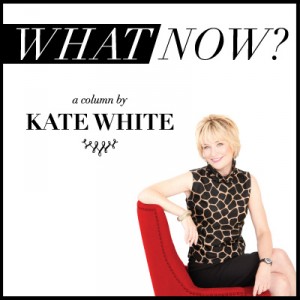Do something for me, will you? Without thinking too long or too hard, describe a fantasy you had as a kid.
Not a romantic yearning, like wishing you could marry one of the Beatles or the Backstreet Boys, but rather something you wanted to be. An astronaut, for instance, or an Academy Award winning actor. Or maybe you longed to be something crazier sounding, completely of your own invention. During his first trip to New York City, my five-year-old nephew Jeff told me that when he grew up he wanted to become a “professional taxi hailer.” For some reason, the kid just loved watching people flag down cabs.
I’m almost embarrassed to admit what my girlhood fantasy was. Around the time I was 10 or so, I began devouring Nancy Drew books, and after I tore through every “Secret of...” “Mystery of…” and “Clue in…” I decided that when I grew up I wanted to be a private detective. At 13, I bought a dark trench coat, and at night I used to walk around my small town wearing it with a plastic revolver stuffed in the pocket.
What’s the point of resurrecting an old dream or yearning? When you’re at a crossroads professionally, I think it can sometimes help point you in a good direction. After all, it’s what you were instinctively drawn to before life got in the way.
Here’s how to let that old dream illuminate your thinking and even motivate you to try something very new in your career.
1. No matter how old you are now, consider whether the dream might still be worth going after.
Has the door really closed, or could the goal still be reachable?
I just finished reading a can’t-put-downable psychological suspense novel (and this summer’s sleeper bestseller) called The Silent Wife by A.S.A. Harrison, who sadly died shortly before publication, at the age of 65. Turns out that this was her first novel. Previously, she’d been a performance artist, typesetter, and writer of non-fiction books (including one called Orgasms and another on cat astrology). She apparently began work on this book in her 50s.
I have no way of knowing for sure, but I bet she toyed for years with the idea of writing fiction and then one day told herself that it wasn’t too late to go for it. Use her as your inspiration.
2. If you don’t think the goal makes sense anymore, consider making a zig or a zag from it.
That’s pretty much what I did. It became clear to me as I grew older that there was no chance in hell I’d ever make a good private eye. Too chicken! (When my husband is traveling, I keep so many lights on at night that I’m probably halfway responsible for global warming.)
But I still loved the whole idea of mysteries, and after a while I realized I could fulfill my desire by writing mysteries rather than solving them. I studied the genre more thoroughly and then finally, in my 40s, typed a first page on my laptop. My ninth novel, a psychological suspense called Eyes on You, will be published next year.
3. If there’s no zig or zag that makes sense, think about your fantasy in non-literal terms. What do the defining characteristics suggest about you?
When I recently reminded the now-grown Jeff of the “professional taxi hailer” comment, he laughed out loud. He said he thought his desire to bring cabs to a halt had to do with his love of being in total control, which is reflected in the job he’s thriving at. “Because I’m in finance,” he pointed out, “I work with numbers all the time, and I like being able to figure out what they mean and then present that—and really own the project.”
There’s a message of some kind hiding in your fantasy occupation. Let’s say, for instance, that you told people you wanted to be an astronaut. That could mean that you’ve got an urge for adventure and risk. Is there some way of getting more of that in your work life without having to be on a mission to Mars?
The message could be even less transparent than that. Think of the David Bowie song, Space Oddity. His astronaut is floating in a tin can “feeling very still.” Maybe that’s what you could use more of in your work: stillness, a chance to think and imagine. Consider how to make it happen.
Speaking of David Bowie, I saw an amazing exhibit on him and his work this summer at London’s Victoria and Albert museum. This was a guy who was never afraid to think big when he was at a creative crossroads. Now, I try to channel him a little whenever I’m in a slump.
What was your childhood career dream? Share in the comments section!


